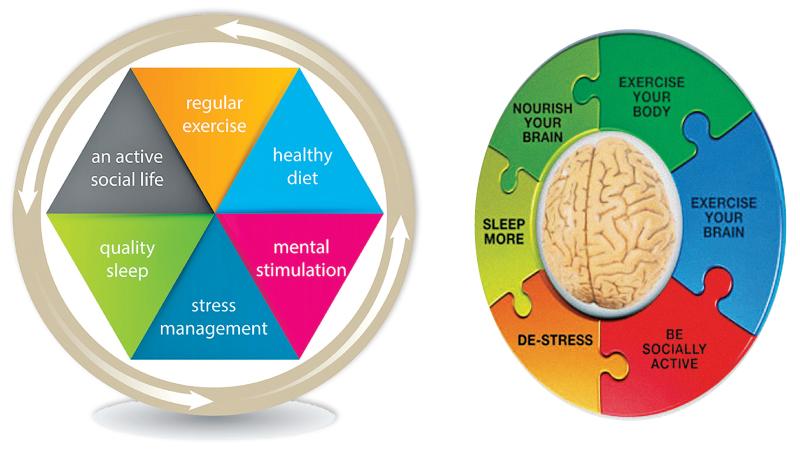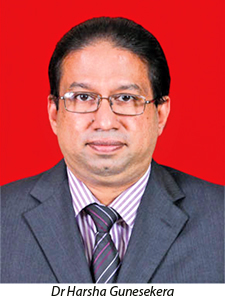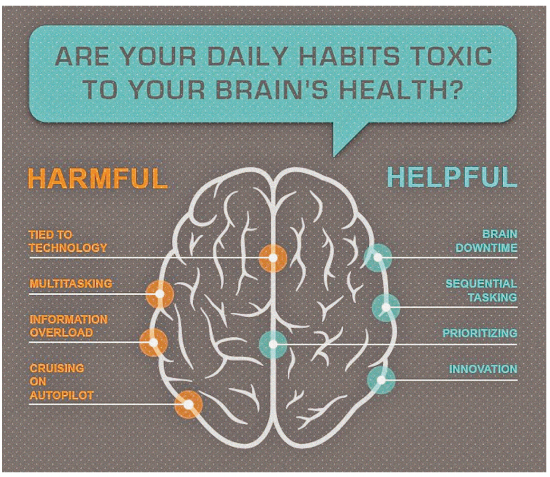
 While national epidemiological data
While national epidemiological data
is not available for Sri Lanka,
a community based study indicates Alzheimer’s disease exists in similar proportions as in developed
countries among those over 65 years
- Health officials
It is one of the most debilitating conditions endured by humankind. Not fully understood why, how, and what causes it, Alzheimer’s Disease (AD), is said to be the result of several different factors, including, age, genes and a whole lot more.
Ongoing research has failed to come up with a satisfactory explanation amid much speculations and theories, as scientists struggle to unravel the key to the early onset of this mysterious neurological condition that pierces the brain cells and robs once active persons of their most precious asset: memory.
Never has there been so urgent a need to find the elusive key and unlock the door on AD and what causes it, as today, escalating ageing populations worldwide are already on the cusp of a time bomb in whose grip they will likely be caught up when they hit their sixties.
Studies in North America, United Kingdom and Europe have reported that dementia affects 4-6% of the population over the age of 65 and 15-20% over the age of 80.
And, while national epidemiological data is not available for Sri Lanka , at least one community based study has revealed that those over 65 years of age has already crossed the line of no return, and that the disease here exists in similar proportions as in developed countries.
However, the plus point is that, although increasing age is the greatest known risk factor for Alzheimer’s, Alzheimer’s is not a part of normal aging.
But, your risk increases greatly after you reach age 65. The rate of dementia doubles every decade after age 60, says an expert in the field.
Consultant Neurologist Sri Jayawardenepura Hospital & Postgraduate Training Institute and President Elect, Association of Sri Lanka Nueorologists , Dr Harsha Gunesekera tells the Sunday Observer why, how and what causes this disease for which there is still no cure, and on a more positive note, how caregivers can help such patients to enjoy a better quality of life within their limited capacities.
Excerpts…
Q. In four days’ time, neurologists, psychiatrists and psychologists worldwide, will focus their collective attention on a subject that has long baffled them: memory loss. How do you describe this specific health condition? Is it the same as Dementia which is also described as irreversible impairment of intellectual functions?
A. Alzheimer’s disease is a progressive disease that destroys memory and other important brain functions. At first, someone with Alzheimer’s disease may notice mild confusion and difficulty in remembering. Eventually, people with the disease may even forget important people in their lives and undergo dramatic personality changes. Dementia is the term given for a group of symptoms characterized by a decline in intellectual functioning severe enough to interfere with a person’s normal daily activities and social relationships. Out of all types of dementia, Alzheimer’s is the most common type in older people.
Q. Has there been a proper national survey to find out how many people suffer from this condition in Sri Lanka? So far I believe there are only limited studies by non government organizations which put the estimated figure at two lakhs or more. Your comments?
A. Studies in North America, United Kingdom and Europe have reported that dementia affects 4-6% of the population over the age of 65 and 15-20% over the age of 80. National epidemiological data is not available for Sri Lanka but one community based study has shown a crude prevalence rate of 3.98% among those over 65 years. This indicates the disease exists in similar proportions as in developed countries.
Q. Dementia is said to occur due to neuron death. Does the same thing happen to those with Alzheimer’s disease?
A. Like all types of dementia, Alzheimer’s is caused by brain (nerve) cell death. It is a neurodegenerative disease, which means there is progressive brain cell death that happens over a course of time. The total brain size shrinks with Alzheimer’s - the brain will gradually have fewer nerve cells and connections (synapses).
Q. Is it an unusual condition? What about normal people who forget wedding anniversaries or birthdays?
A. The most common symptom of Alzheimer’s is difficultly remembering things, particularly, new information such as, an appointment you have made. While people who are aging normally may forget things such as birthdays, they will typically remember them later; that is “you remember that you forgot”. However, with Alzheimer’s disease , that doesn’t happen. You forget something and then you don’t get that information back; it doesn’t seem familiar to you even if someone reminds you.
Q. In Alzheimer’s, what triggers this health condition in normal people who until their mental faculties began to die have led an active life, both, physically and mentally? Are the causes directly related to the human brain ? Is it genetically caused? Explain in detail.
A. It’s not fully understood why the changes that lead to Alzheimer’s disease occur. Several different factors are believed to be involved.
Risk factors for developing the condition include, aging, a family history of Alzheimer’s, and carrying certain genes. Only in less than 5 percent of the time, Alzheimer’s is caused by specific genetic changes that virtually guarantee a person will develop the disease. Although the causes of Alzheimer’s aren’t yet fully understood, its effect on the brain is clear.
Two types of abnormal proteins are implicated in the disease process. Clumps of a protein called beta-amyloid may damage and destroy brain cells in several ways, including interfering with cell-to-cell communication. In addition, threads of another protein called Tau twist into abnormal tangles inside brain cells, leading to failure of the transportation of nutrients and other essential materials.
 Q. Several other reasons have also been suggested for confused behaviour, such as, excess of aluminium and other chemicals, or abnormal proteins in the brain. But, the causes are still not clear. Your comments.
Q. Several other reasons have also been suggested for confused behaviour, such as, excess of aluminium and other chemicals, or abnormal proteins in the brain. But, the causes are still not clear. Your comments.
A. The link between aluminum and Alzheimer’s disease has been the subject of scientific debate for several decades. However, this relationship remains to be established.
Q. Who are those most at risk age wise?
A. Increasing age is the greatest known risk factor for Alzheimer’s. Alzheimer’s is not a part of normal aging, but your risk increases greatly after you reach age 65.
The rate of dementia doubles every decade after age 60. People with rare genetic changes linked to early-onset of Alzheimer’s begin experiencing symptoms as early as their 30s.
Q. Gender wise, who are most vulnerable?
A. Women seem to be more likely than men to develop Alzheimer’s disease, in part because they live longer.
Q. What are the common symptoms to look for in someone who is losing his/her memory?
A. A number of conditions — not only Alzheimer’s disease — can cause memory loss in older adults. Getting a prompt diagnosis and appropriate care is important. Some degree of memory problems, as well as a modest decline in other thinking skills, is a fairly common part of aging.
Normal age-related memory loss doesn’t prevent you from living a full, productive life. There’s a difference, however, between normal changes in memory and memory loss associated with Alzheimer’s disease.
Often, memory loss that disrupts your life is one of the first or more-recognizable signs of dementia. Other early signs might include; asking the same questions repeatedly, forgetting common words when speaking, mixing up words — saying “bed” instead of “table,” for example.
Some patients will show features like; taking longer to complete familiar tasks, such as following a recipe, misplacing items in inappropriate places, like putting a wallet in a kitchen drawer, getting lost while walking or driving in a familiar area and having changes in mood or behaviour, for no apparent reason.
Q. Is it curable if detected in its early stages?
A. Currently, there is no cure for Alzheimer’s disease. However, some medications may help delay the progression of symptoms associated with Alzheimer’s disease. Also, some medicines may help control behavioural symptoms, such as sleeplessness, agitation, wandering, anxiety, and depression. Treating these behavioural symptoms often makes people with Alzheimer’s more comfortable and makes their care easier.
Q. Is there sufficient awareness about Alzheimer’s in our country, going by the number of persons who now come in for examination and screening at your outdoor clinics?
A. Yes, with the increase in the aging population which could also be seen in developing countries like Sri Lanka, there are more persons seeking medical advice in clinics.
Improved awareness of the disease among the public through health education has also contributed to increased turnover of patients seeking medical attention for memory loss.
Q. Is there any effective therapy to prevent the disease?
A. No treatment can prevent Alzheimer’s disease. Alzheimer’s, like other common chronic conditions, probably develops as a result of complex interactions among multiple factors, including age, genetics, environment, lifestyle, and coexisting medical conditions.
Apart from age and genes, the other risk factors can be changed or modified to reduce the risk of developing the disease. Certain lifestyle choices, such as, physical activity and healthy diet, may help support brain health and prevent Alzheimer’s. Many of these lifestyle changes have been shown to lower the risk of other diseases, like heart disease and stroke, which have been linked to dementia and Alzheimer’s. Healthy lifestyle choices can improve your health and possibly protect your brain.
Q. What is the treatment available to Alzheimer’s patients in Sri Lanka?
A. The first step in the process is to diagnose the disease. Diagnosing Alzheimer’s requires careful medical and neuropsychological evaluation and tests, (such as blood tests and brain scans) to rule out other causes of dementia-like symptoms.
Most of the medications recommended for treatment of the disease are available in Sri Lanka. However, these medications only help delay the progression of symptoms associated with Alzheimer’s disease and has to be started early in the course of the disease.
Q. At a public lecture on Alzheimer’s disease, to be held on Sept. 21 at the Lanka Alzheimer’s Foundation the discussion is to be on ‘ Tea and Cognitive Disease’.
A. The guest speaker Dr Shehan Williams a Professor of psychiatry and consultant psychiatrist of the Faculty of Medicine, University of Kelaniya, has been reported to have said that recent epidemiological studies provide evidence that higher tea consumption could be related with slower cognitive decline, reduced risk of progression from mild cognitive impairment to AD , and reduced mortality in patients with AD. He says, there is plenty of evidence to prove this.
Q. My question is: Can tea phytochemicals play a role in AD prevention? Your comments.
A. There has been several studies looking into this area of tea and coffee consumption and the risk of Alzheimer’s and other neurodegenerative diseases. Some studies have shown that regular tea consumption reduces the risk of dementia by as much as 50%. This benefit has been seen particularly in people susceptible to Alzheimer’s disease because of a particular gene they carry. The benefit has been observed irrespective of the kind of tea consumed (black or green).
The exact way how tea may help protect against dementia is not known, but other findings suggest that the brain-protecting effects of tea could be from bioactive compounds in tea leaves, such as flavonoids, which have anti-inflammatory and antioxidant potential.
